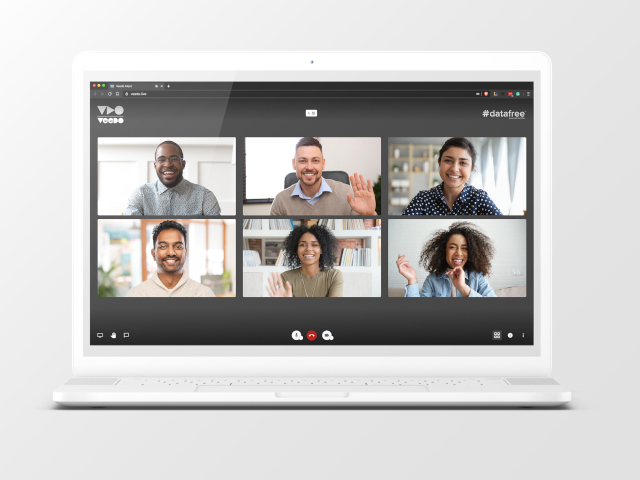The COVID-19 pandemic has undoubtedly driven business leaders to rethink the way in which their businesses operate. With the need to social distance and remote work, video conferencing provides a personal approach to staying connected with colleagues as the closest alternative to face-to-face meetings.
Thanks to special offerings from Microsoft Teams, Google Hangouts and Zoom, companies are taking advantage of video conferencing to bridge the gap that these preventative measures have introduced.
However, like all online services, video conferencing uses data and this can influence productivity in an emerging market like South Africa, where fibre and mobile data is expensive. In a 2018 study conducted by biNu, it was noted that most people (in a South African township in Cape Town) have irregular or no access to Wi-Fi and 82% of people regularly run out of data.
Because of these data charges – which come at a cost to the employee working from home – many companies have actively contacted biNu (powering #datafree) with requests asking if it is in fact possible to enable zero-rated, reverse billing for the various video conference platforms to engage with their audiences while personal movement is restricted.
“Unfortunately, for a variety of technical reasons it is not feasible to enable reverse billing for these big global conferencing and streaming platforms,” says Gour Lentell, biNu CEO. “This thought, a reverse billing video platform, did however present an opportunity for an emerging market like South Africa,” added Gour.
Together with Mignon Hardie, co-founder at Veedo, the idea to create a #datafree video platform was explored. As a business leader, Hardie was aware of the vital need for a cost-effective means of easy virtual communications in order to connect staff working remotely, as well as the need to deliver a range of online educational and support services to communities. With these requirements in mind, the #datafree Veedo video platform was conceptualised.
Veedo is a reverse billed, #datafree video conferencing system. Veedo is a fully featured, secure, browser based, simple to use video conferencing solution with #datafree mobile access in South Africa – a purely South African product.
“It was noted that the mass market in South Africa did not download apps for two reasons: one is that they do not have space on their phone for an app and the second is the cost of data used for downloading the app,” says Mignon Hardie. “This is why the partnership with biNu made sense, Veedo provides the video conferencing platform and biNu provides #datafree reverse billing,” added Hardie.
All the user needs to utilise Veedo is a Chromium based browser, no app is required. People don’t even need to have any airtime or data balance to use this platform!
Effective communication is key during this trying time and plays a critical role in keeping employees who reside in different locations connected. “Based on the queries received, both the Public and Private sector are willing to make use of Veedo which ensures that all employees remain connected and productive as society moves to this new way of working,” added Lentell.
“Veedo not only makes sense but it also has broader application too, providing a means to deliver education, services and even psycho-social support,” noted Hardie. “We look forward to exploring these avenues in the future too.”
The results of the coronavirus pandemic are certain to leave a lasting impact on the way businesses run and the way employees communicate even long after it’s safe to return to the workplace.





